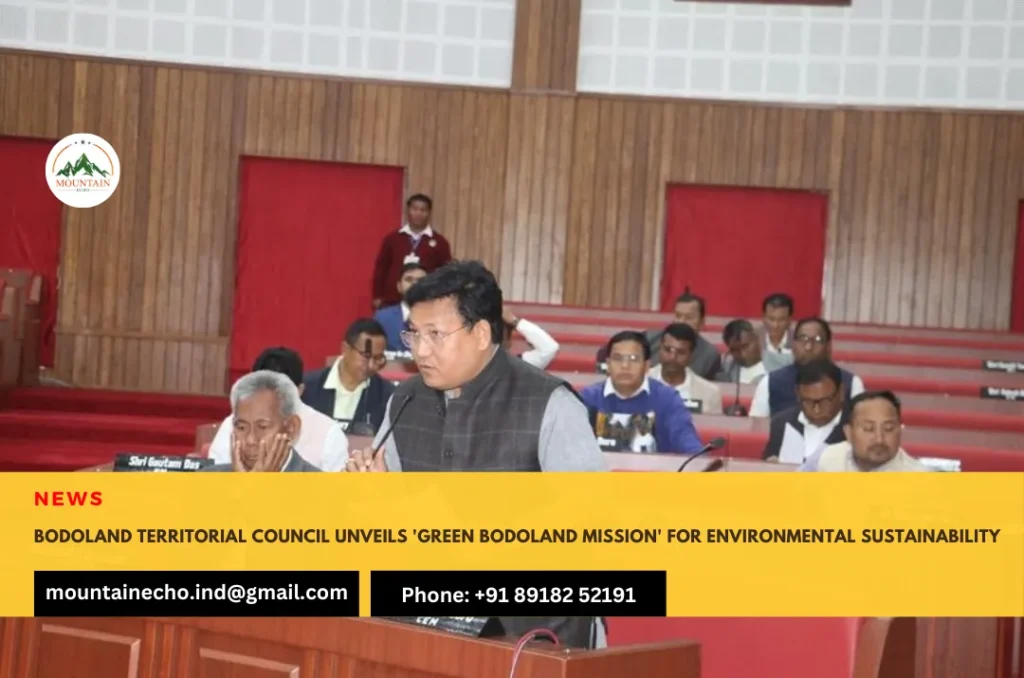Bodoland Territorial Council unveils ‘Green Bodoland Mission’ for environmental sustainability
WhatsApp Channel
Join Now
A promising step towards environmental sustainability has been taken by the Bodoland Territorial Council (BTC) in Assam. In a recent legislative council session, the BTC unanimously adopted a resolution to launch the “Green Bodoland Mission (GBM),” a two-year initiative aimed at large-scale tree plantation, plastic pollution reduction, and sustainable groundwater management.
The GBM will be implemented starting January 1, 2024, with a dedicated 2% allocation from the BTC’s State Owned Priority Development (SOPD) fund. This commitment signifies the council’s recognition of the urgent need to address environmental challenges in the region, which is home to a rich biodiversity and faces threats like deforestation and plastic pollution.
The BTC Chief, Pramod Boro, emphasized the importance of the GBM in natural resource management in the region which is one of the bio-diversity hotspots of the Northeastern region.
He stated, “Assam is a multi-hazard prone areas and the Bodo areas are most vulnerable to climate change. Majority of the population is dependent on subsistence agriculture.”
The Green Bodoland Mission is a crucial step towards achieving this vision and protecting the unique natural heritage of the region.
Bodoland Territorial Region, is an autonomous area located in Assam, Northeast India. Comprising four districts along the northern bank of the Brahmaputra River, below the Bhutan and Arunachal Pradesh foothills, it is governed by the Bodoland Territorial Council.
Spread over nine thousand square kilometers, the region is primarily inhabited by the Bodo people and other indigenous communities of Assam. The BTC region has two national parks, 41 reserve forests, and two wildlife sanctuaries, with 53 major rivers coursing through its territory. Covering 365,388.53 hectares (3,653.89 sq km), the region’s total forest area constitutes 13.21% of Assam’s overall forest cover.
The Green Bodoland Mission is a commendable step towards a greener future for the region. The success of the GBM will depend on its effective implementation and continued commitment from all stakeholders.
The BTC Chief emphasized that adaptation projects must be undertaken on a large scale to decrease the vulnerability of the population. The mission also envisions extensive community involvement through education and incentive programs.
Telegram Channel
Join Now



